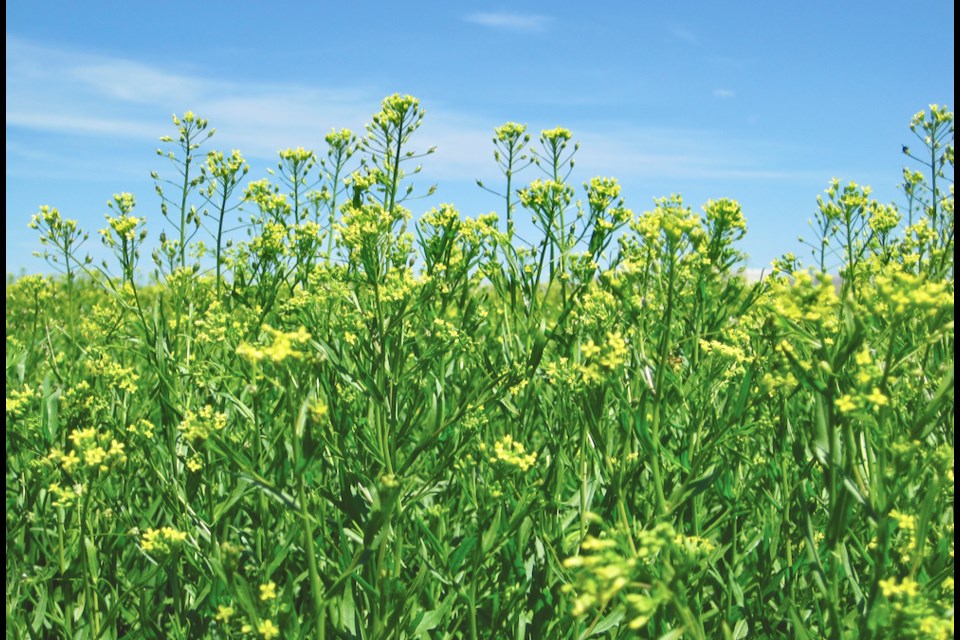THUNDER BAY — The Lakehead University Agricultural Research Station is testing a new crop – winter camelina.
It's an oil seed crop from the mustard family that's getting increasing attention because of its hardiness and its suitability for both human and animal consumption, as well as a fuel source.
Dr. Tarlok Sahota, the director of the station, obtained the seed from Agriculture and Agri-Food Canada's research facility in Saskatoon.
Camelina is a short-season crop that possesses very good frost tolerance in the seedling stage.
The full-grown plants exhibit good tolerance to drought.
It's also not prone to "pod shattering" when it's cut.
Winter camelina flowers in late April, which is earlier than other crops and even earlier than most spring-flowering wild plants.
As a result, its flowers are prized by native pollinators and honey bees, for which it provides abundant pollen and nectar.
In the prairie provinces, the optimum window for seeding winter camelina is late August to mid-September.
The Lakehead University Agricultural Research Station is trying to determine the best seeding time in this area, and its winter survival potential.
So station staff seeded it at 10-day intervals between Aug. 25 and Sept. 25.
The AAFC scientists in Saskatoon launched a winter camelina trial there in the fall of 2019.
When an early freeze-up occurred, researcher Christina Eynck thought, "This is not going to work."
But in an article on the Country Guide website, she said "Come spring the plants looked fantastic and the trials worked out really well. So that was impressive and a really encouraging result, and it potentially opens a wider window to seed winter camelina."
Camelina is a close relative of canola, and can be used as a cooking oil, in salad dressings, or in spreads and margarines.
Also known as false flax, the government of Saskatchewan says the oilseed crop has been garnering considerable attention in recent years, partly because of its potential as a fuel.
A government publication states, "This is partly due to a worldwide interest in bio-fuels. Other possible bio-based products from camelina include equine and fish feed, bio-lubricants and healthy dietary oil. Most recently, the jet fuel market has emerged as a potential business opportunity for camelina oil and, therefore, for camelina producers."
